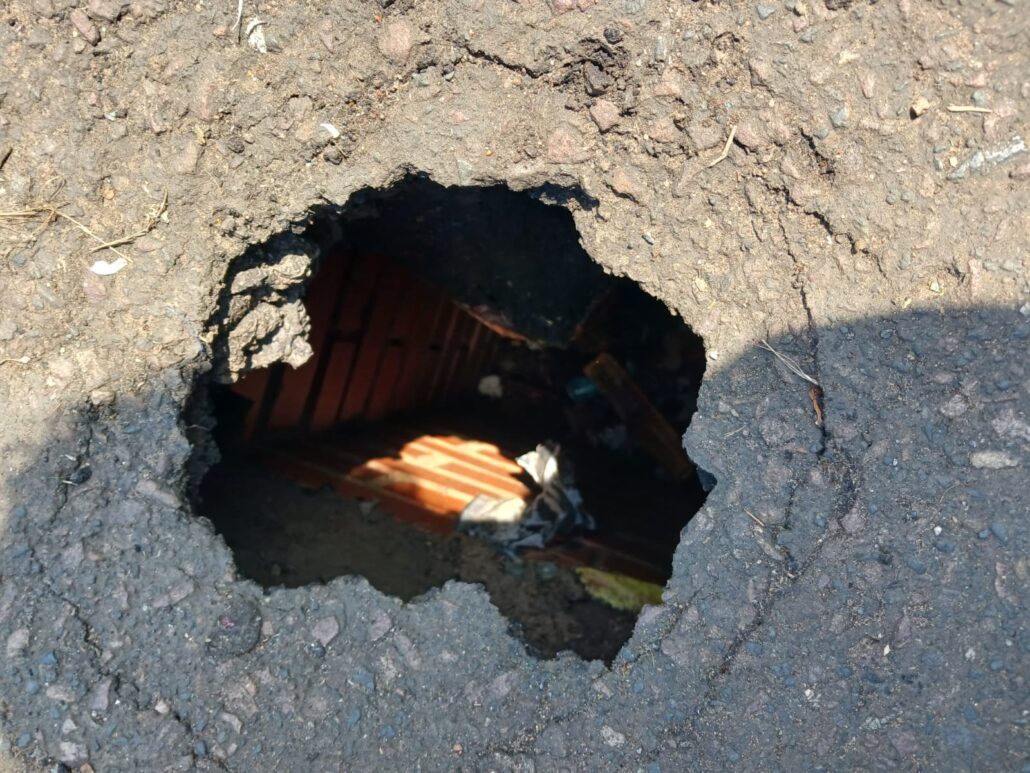Priyanka Govender
Picture driving on the way to work, when suddenly the entire car takes a large thump. A pothole. A common South African experience, akin to the likes of home affairs queues and loadshedding right before a deadline. Usually a situation like this is resolved in a matter of days with an insurance claim and a tow truck. And as usual, one does have the right to complain- but as much as a good venting is warranted and welcome, have any stopped for a moment to think about what it would be like if the situation couldn’t have been solved in such a relatively short period? If there was no money to replace that wheel, no insurance to be claimed and no call into work to make everything okay?
South Africa is estimated to have over 25 million potholes countrywide, increasing 67% over the last five years, with KZN’s floods in the past few years making the situation even worse. It’s a serious issue, not only for our middle and upper classes but for our large population of informal workers whose lives are significantly impacted by cases like these.
“The road infrastructure and pavements, in the past there wasn’t a single pothole, but of late things are bad.”- Barrow Operator
In the past management from the city, such as the trenching involved with laying Wifi cables and repairs were dealt with carefully and swiftly– but not anymore, causing the pothole problem we have today. Many also believe that rats, chewing through gravel, a constant pest to many food vendors, are a cause for the potholes.
Another operator shares the struggles of the long term and day to day effects of potholes on the informal working community. He says that potholes affect their work negatively because of constant incidents with their equipment resulting in the wheels of their barrows getting damaged. The wheels are expensive to replace due to the fact that expensive rubber tyres are needed for their barrows to withstand the rough and pockmarked terrain they navigate daily. They can cost around R450 each and R900 in a set. This makes a significant dent in their income, with their daily income averaging less than R300, leading to periods of financial instability.
Even if the wheels of their equipment don’t get damaged, if they get stuck and are pulling a heavy load, which is commonplace for their line of work, often there is no one available to help get their wheels back out. This leads to valuable work time being wasted, a delay in delivery time for a valuable customer and more often than not, the damaging of the carried goods upon impact. They are then responsible for replacing them as professionals who strive to maintain strong relationships with their customers. Potholes also slow down the way in which the barrow operators operate. They take longer to get to their destinations, as they have to avoid these holes, maneuvering around them with their heavy cargo which results in reducing their speed. This inefficacy also disadvantages the vendors who rely on the cargo the operators are delivering for them.
And it’s not only the tyres or wheels that get damaged, sometimes the barrow breaks in half because of the impact, especially when carrying a heavy load. When the barrow breaks, it causes physical injuries because of the great shock that is endured. And as for repairing a broken barrow- proper welding and reinforcing costs around R600 and they have to lose a day of working to get the repairs done. If they don’t have that money, they either need to get a loan, hire another barrow or sacrifice essential profit that many may need to support their dependents.
Informal workers deal with and overcome the problem of potholes every day in ways unimaginable to a lot of people. From having to deal with constant repairs to equipment they use to source their livelihoods, to having to suffer injury to their bodies due to large impacts. So, the next time an inevitable rant surfaces about a blown-out tyre, hopefully a moment can be set aside to think about the deeper implications of potholes.



